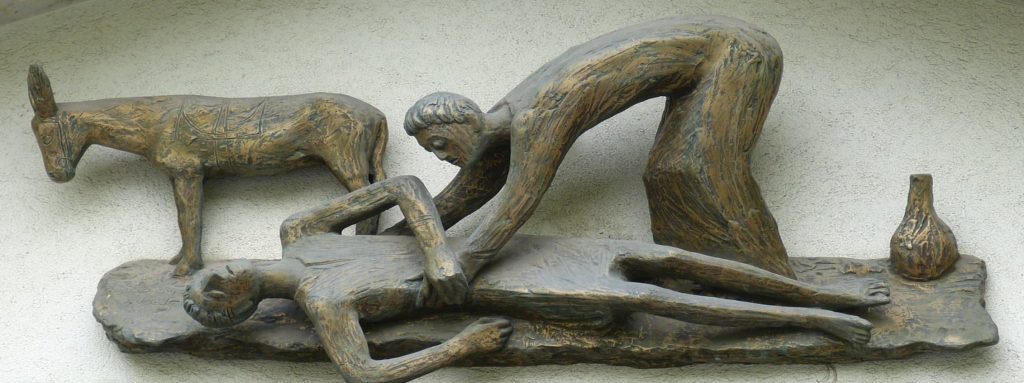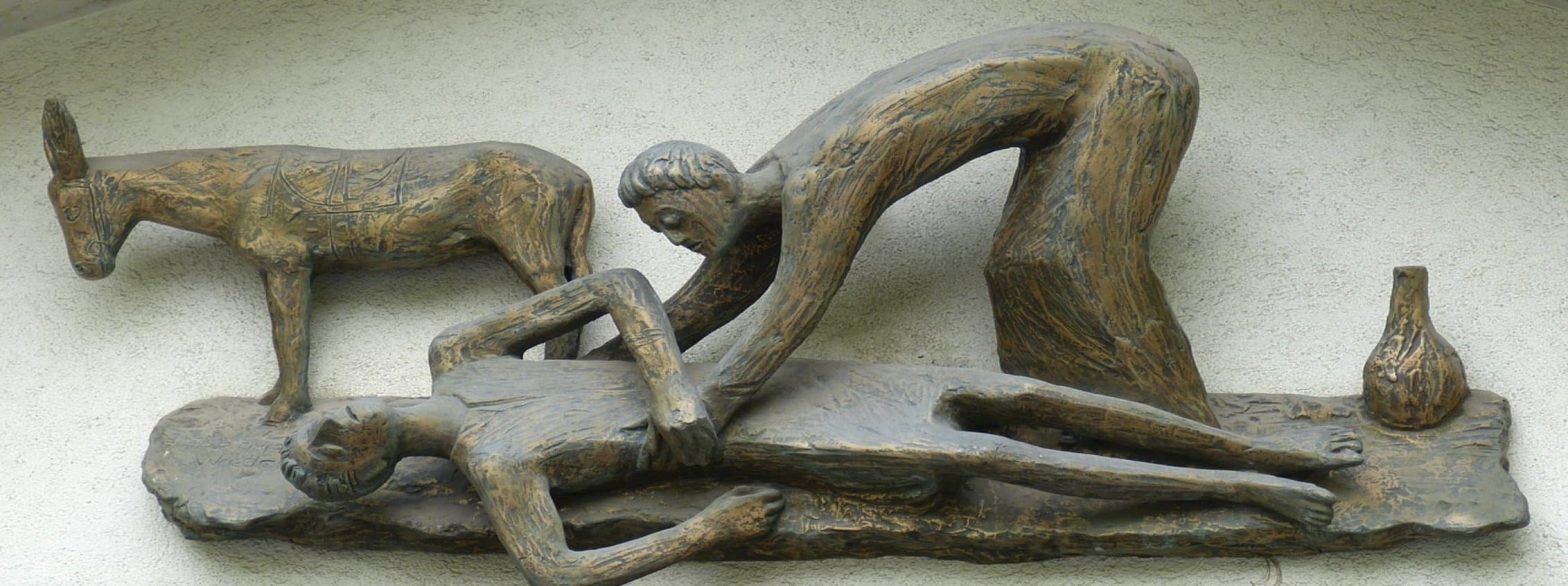
Jesus interjected many stories into His teachings. He designed them to illustrate His lesson at hand. He told the Story of the good Samaritan to answer a question asked from out of the crowd.
One day an expert in religious law stood up to test Jesus by asking him this question: “Teacher, what should I do to inherit eternal life?” Luke 10:25
Before we go any further, let’s glance at the Lord’s conclusion in the following verse. Then, we’ll get into the dialogue between Jesus and this expert in religious law.
Now which of these three would you say was a neighbor to the man who was attacked by bandits? Jesus asked. The man replied, “The one who showed him mercy.” Then Jesus said, “Yes, now go and do the same.” Luke 10:36-37
In today’s world, coaching has become very popular among businesses and the church. A coach basically asks questions to help a person come to a solution instead of giving them answers.
Coaches today could learn from Jesus because He mastered the art of coaching. Take note: Jesus never gave this man an answer. He only confirmed his answers.
The conversation continued with Jesus asking the man what the law of Moses said about eternal life. He followed up with, “How do you read it?” In other words, “How do you interpret it?”
The man answered, “You must love the Lord your God with all your heart, all your soul, all your strength, and all your mind.” And, “Love your neighbor as yourself.” Luke 10:27
The Lord confirmed the man’s answer. Then Jesus told him. “Do this, and you will live!” The scripture went on to say that the man wanted to justify his actions. So he asked another question.

Who Is Our Neighbor?
This time, he asked, “And who is my neighbor?” Maybe he thought he could stump Jesus. But instead, his question sparked the Lord to tell the Story of the good Samaritan. It began with;
A Jewish man was traveling from Jerusalem down to Jericho, and he was attacked by bandits. They stripped him of his clothes, beat him up, and left him half dead beside the road. Luke 10:30
Even though the characters in the Story remain unnamed, Jesus purposely mentioned their nationality or position.
He said two affluent Jewish men walked toward the Jewish man who lay beside the road half dead.
By chance, a priest came along. But when he saw the man lying there, he crossed to the other side of the road and passed him by. A Temple assistant walked over and looked at him lying there, but he also passed by on the other side. Luke 10:31-32
We could make an assumption as to why these men didn’t stop and help. Reasons today could range from not wanting to get involved to being too busy.
Jews disliked Samaritans because they were Samaritans. Nowhere in this Story did Jesus refer to the next man who walked by as a good Samaritan. That’s the name we have given him.
Then a despised Samaritan came along, and when he saw the man, he felt compassion for him. Luke 10:33

The Story Referred to the Samaritan as Despised, not Good
So, Jesus referred to him as despised. Just to set the record straight, the Lord didn’t despise Samaritans. But He wanted to make a point with the man who questioned Him. Jesus continued.
Going over to him, the Samaritan soothed his wounds with olive oil and wine and bandaged them. Then he put the man on his own donkey and took him to an inn, where he took care of him. Luke 10:34
Jesus just painted a picture of one of the most unlikely people a Jewish person would consider their neighbor. As the Lord continued His Story, He told how the Samaritan went the extra mile.
The next day he handed the innkeeper two silver coins, telling him, ‘Take care of this man. If his bill runs higher than this, I’ll pay you the next time I’m here.’ Luke 10:35
So, the Samaritan tended his wounds and bandaged them. He walked so the man could ride his donkey and paid all his expenses at the Holiday Inn. Jesus then asked His questioner;
Now which of these three would you say was a neighbor to the man who was attacked by bandits? Luke 10:36
What else could the expert of the law answer except the one he gave? Therefore, he said, “The one who showed him mercy.”
Jesus didn’t tell this Story of a helpful Samaritan to make all Samaritans look good. Neither did he tell it to make all religious leaders look bad.
We know good and bad people come from all walks of life. His point came down to, we must be neighborly to whoever needs a helping hand. Jesus ended the conversation with the following.
Then Jesus said, “Yes, now go and do the same.” Luke 10:37

A Word from the Epistle of James
The Lord made that statement to us, as well as His audience. In his epistle, James addressed something similar when discussing about us putting our faith into action.
What good is it, dear brothers and sisters, if you say you have faith but don’t show it by your actions? Can that kind of faith save anyone? James 2:14
James continued by giving a scenario just like Jesus did when He told the Story of the good Samaritan.
Suppose you see a brother or sister who has no food or clothing, and you say, “Good-bye and have a good day; stay warm and eat well”—but then you don’t give that person any food or clothing. What good does that do? James 2:15-16
Lord, just like the Story of the Samaritan, help us to be good neighbors as well. And also help us to always put our faith in action.
Republished with permission from Blogs.crossmap.com, featuring inspiring Bible verses about The Story Of The Good Samaritan.
